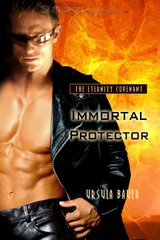I like dark heroes. Operative , key, mega-major word in that declarative sentence: Hero.
I don’t like dark, unredeemable sociopaths. Most likely because they remind me too much of work.
All joking aside: I read a book last week by an author renowned for her dark, edgy heroes. These dudes are bad, on the brink, tormented. But the hero of this particular book was no hero. He was on the brink, kind of sick, in the process of mentally falling apart. He’s basking in the glory of being bad. He’s sexually interested in the ingénue heroine, he realizes she’s in a bad place, he screws her and then turns her over to the madman running the current house party he’s attending. All the while he’s angsting over his badness, and how he’s kind of tired of working for a group that is neither good nor bad, but uses his lack of core moral values to their own advantage. Then, amidst this miasma of internal monologue he decides to go see how the heroine fares whilst she is being tortured. And then he decides he’ll save her. Sure, she’s been cut to ribbons and is in shock, but what the hell it, he does it anyway. And thus the ‘romance’ ensues, and, we hope the redemption of this bad dude.
You know, I just couldn’t buy it, and I can buy a lot if it’s wrapped in a nice enough and convincing enough package. This package had scraps of old newspaper binding it together with frayed twine. This guy wasn’t really heroic. Too much of what he did was based on whim. He condemns the heroine to death via a sadistic madman, then he whimsically saves her. What makes me as a reader believe he won’t turn her over to the badder bad guys (the ones badder than him, even though he knows he’s a bad man)? He’s completely driven by impulse devoid of conscience or understanding of anyone’s humanity. That means, in clinical terms (and I’m a nurse, so I guess I can’t separate things as well as I should), our hero is suffering from one of the following: Best case scenario – borderline personality disorder; worst case scenario – sociopathology.
And our heroine is suffering from a terminal case of idiocy. She keeps thinking this guy can help her. She’s in another country on a work permit. Her apartment, and the American Embassy full of U.S. Marines with guns and serious attitude problems are equidistant from her point of escape. She decides, after escaping the bad guys with the alleged hero, and then escaping the hero, that she needs a god damned bath, and goes back to her flat instead of , that’s right, the embassy.
Technically, the writing was superb. But man, I couldn’t get sold on these characters. This hero could not be redeemed. I could have bought the heroine if she showed some growth, some good sense, and IF the hero had heroic qualities he displayed with her. But he was too ambivalent and too impulse based to make me suspend my disbelief that there could be a happily ever after, so her acceptance of him didn’t add up.
I saw an author recently who posed the question to the audience: how bad can you make a hero, so bad that you think he can’t be redeemed: and then what could you do to redeem him? We had a lot of interesting answers. After reading this book, though, I’ve come to a realization that if you have no heroic qualities whatsoever in your hero, you don’t have a good male lead for your romance novel.
I may like heros dark, but I still need a spark of light in that darkness to tell me there is hope. If the light is completely out, then the hero’s not worth the effort, and the heroine’s a fool for trying.
Many years ago, in grade school I got a question wrong on a science test: the question read something to the effect of: what do you need to see your reflection? Everyone answered a mirror. Right, but not totally right. You also need light. Without even the merest bit of light, the mirror is useless. Same goes for the dark hero.
Subscribe to:
Post Comments (Atom)






2 comments:
Great entry and wonderful points.:)
Thanks Jordan!
Post a Comment